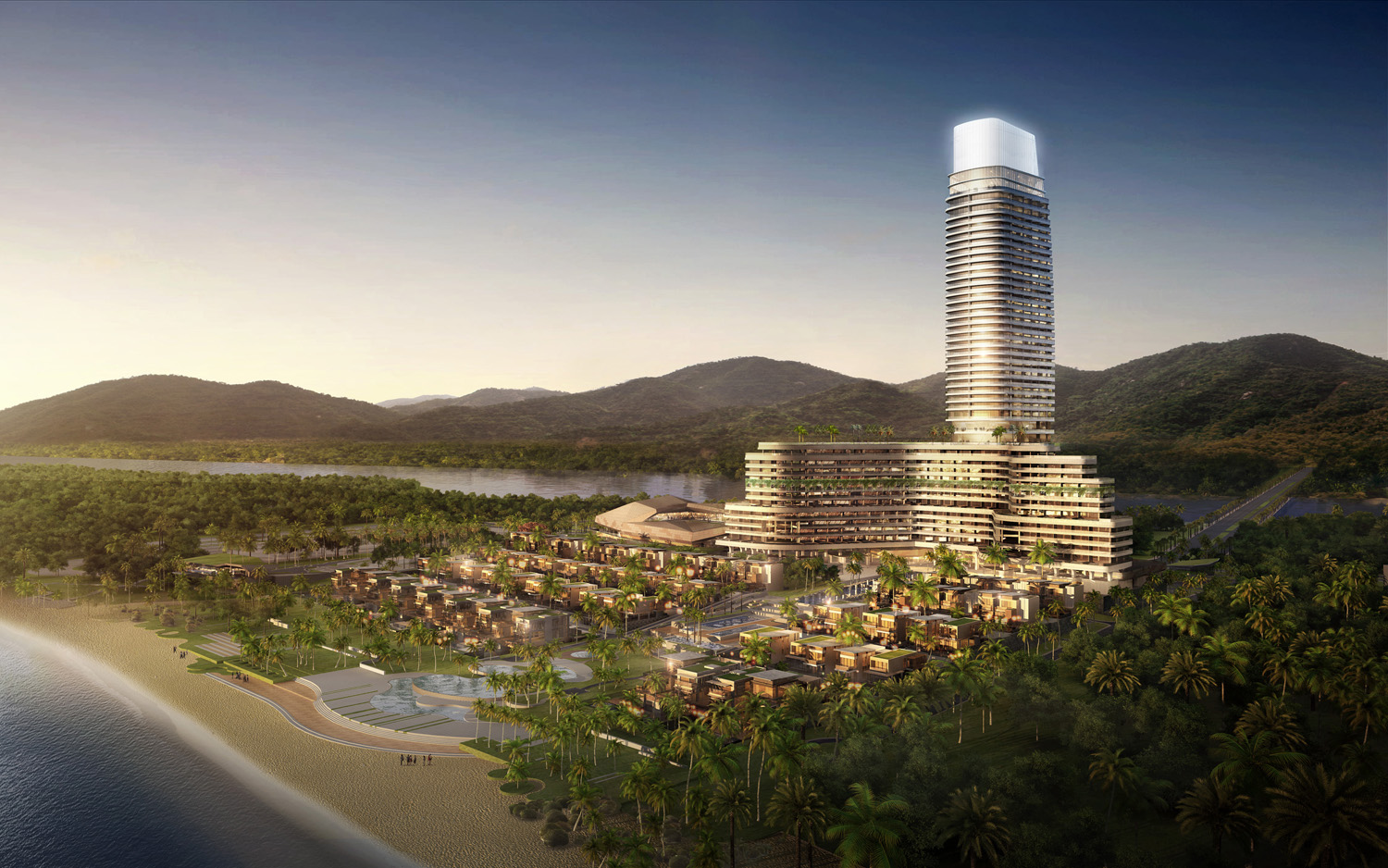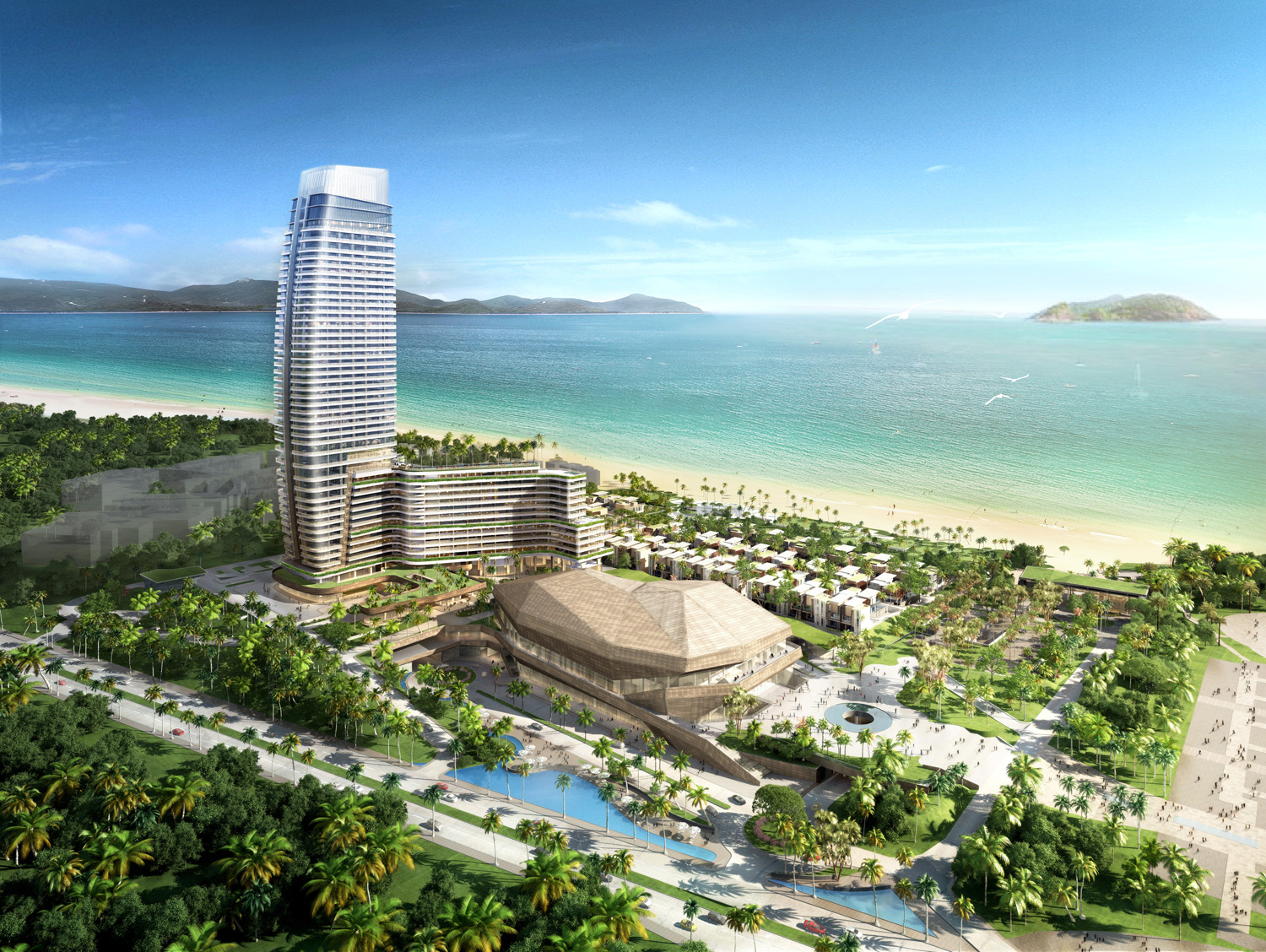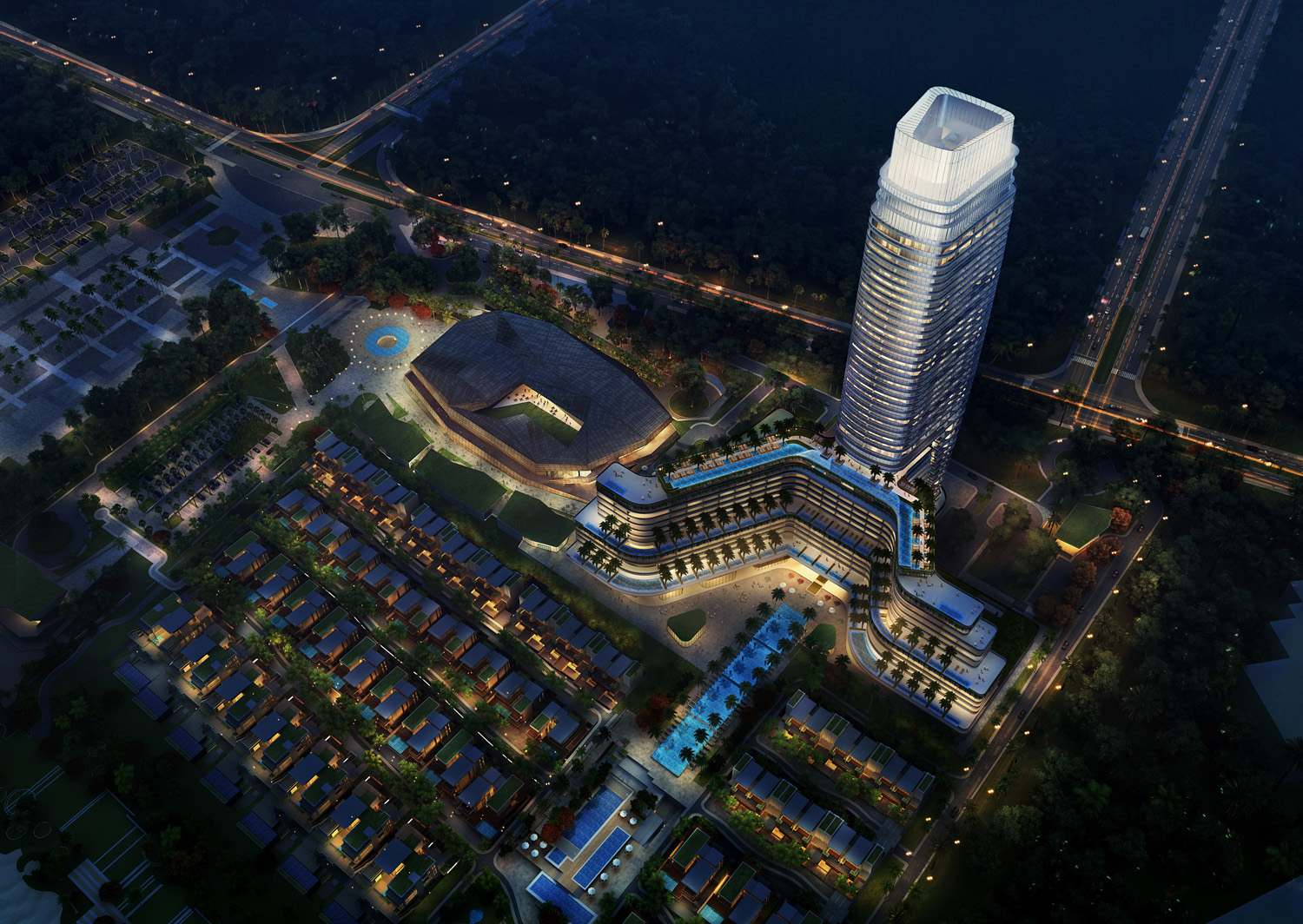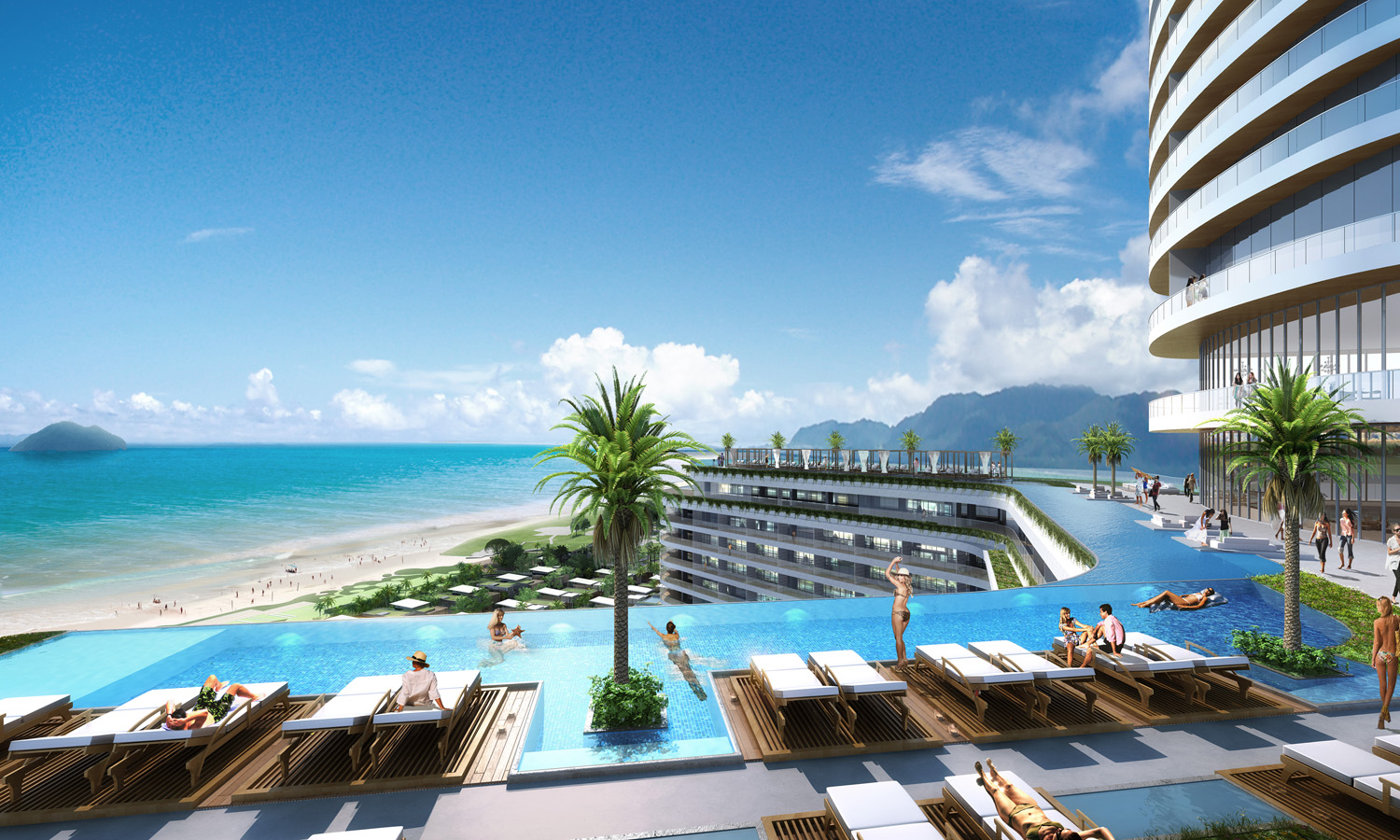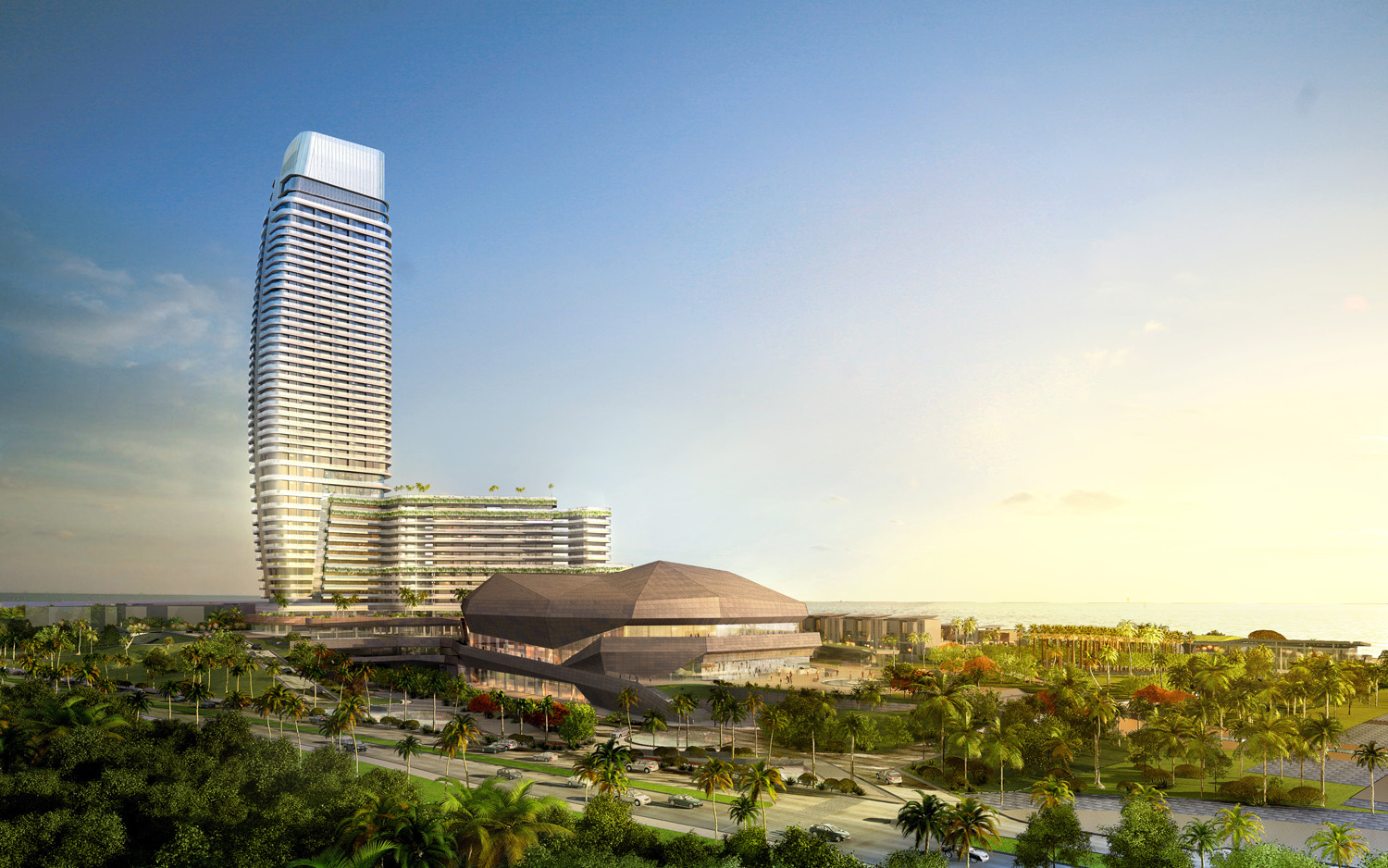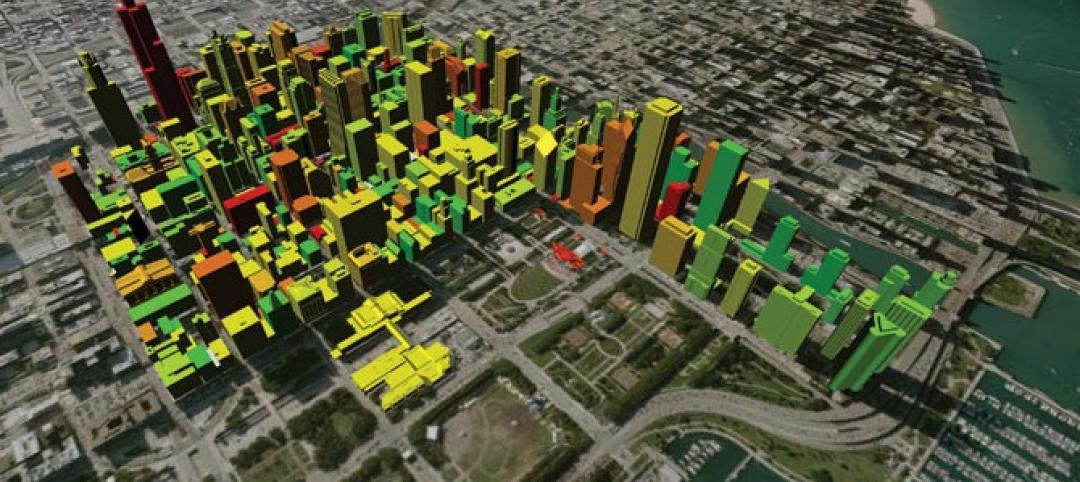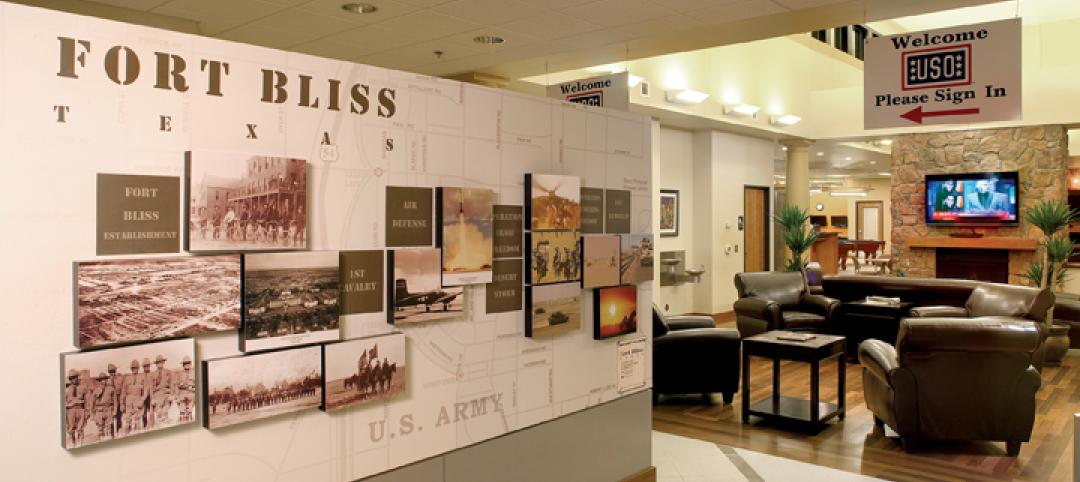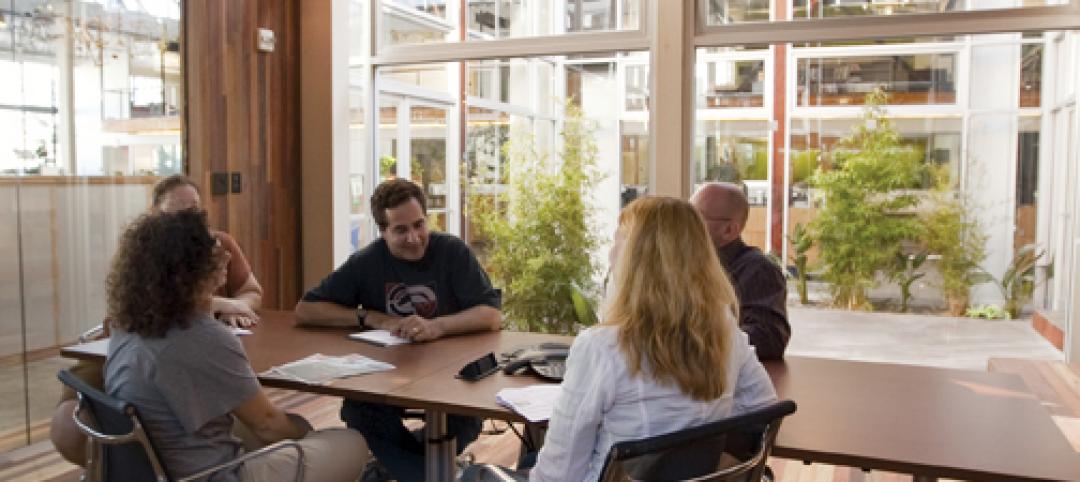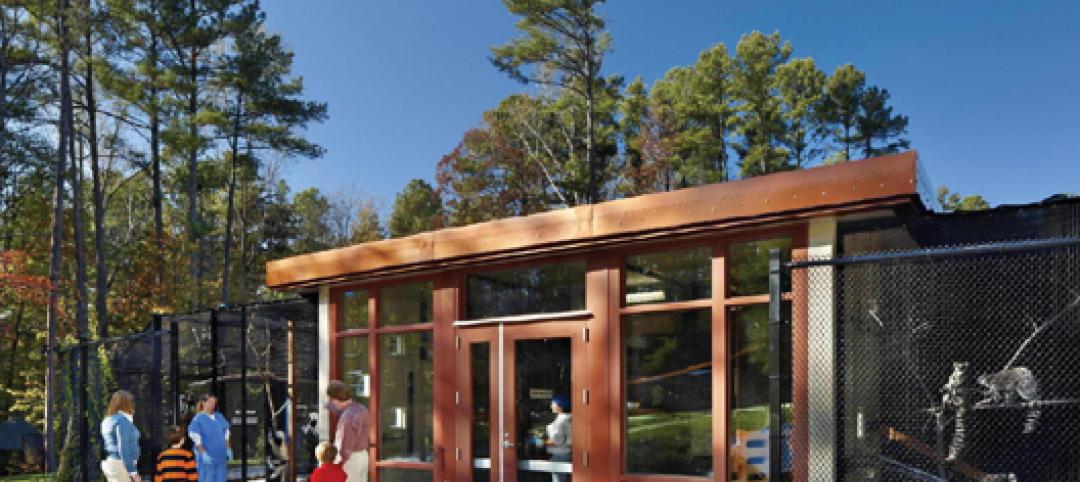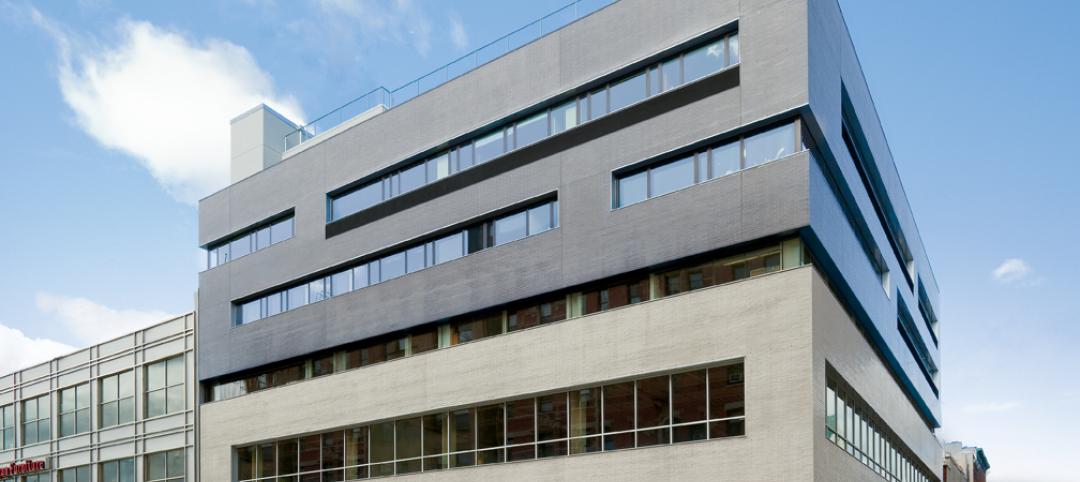Architecture firm Goettsch Partners has unveiled its design for a new resort and meeting destination on China’s Hainan Island in Haitang Bay.
Developed by Poly Real Estate Group, the complex, called Rosewood Sanya and International Finance Forum, features a 729-key resort hotel and serviced apartment tower, a 28,000-sm International Finance Forum convention center, a series of connecting retail buildings, and a modest visitors center.
Located at the southern end of the island in the city of Sanya, the complex focuses on two primary design elements: a lighthouse tower for the hotel and serviced apartments, and a rock form for the convention center.
To be operated by Rosewood Hotels & Resorts, the 45-story, 123,500-sm hotel and serviced apartment tower is distinctive as a resort property, standing as a clear landmark on the waterfront. The International Finance Forum is designed as a premier convention facility, catering to national and international economic and political summits, as well as a variety of other meetings and special events.
Rising from a conceptual outcropping of rock, the 233-meter-tall “lighthouse” hotel and serviced apartment tower will be an iconic symbol of Haitang Bay, with its glowing beacon visible as visitors approach from any direction.
Designed to be a unique resort in the sky, the building is organized vertically, with the arrival sequence, landscape, and incorporation of water and views all considered integral to the guest experience.
The resort is purposely designed to be intimate and exclusive, offering a limited number of rooms—all generously sized—as well as an extensive array of amenities. Hotel guests arrive at a lushly landscaped entry and are immediately whisked up elevators to the sky lobby on level 14 for check-in. This expansive two-story level features unparalleled views and landscaped terraces, along with several amenities, including a sweeping infinity-edge sky pool, lobby lounge, three-meal restaurant, and an executive club.
From the sky lobby, local elevators then escort guests to their rooms on the lower levels. All 229 guest rooms face east and feature ocean views. Each guestroom also includes its own individual terrace or, in some cases, its own plunge pool.
The 500 serviced apartments are positioned on the upper floors of the tower, as well as behind the hotel areas on the lower floors. The top of the tower provides a club amenity level for all apartment units. This multilevel space contains small gathering and larger meeting spaces, along with areas for drinks and entertainment.
The overall complex is scheduled for completion in 2015, with the hotel opening in 2017.
Related Stories
| Jan 25, 2011
Bloomberg launches NYC Urban Tech Innovation Center
To promote the development and commercialization of green building technologies in New York City, Mayor Michael R. Bloomberg has launched the NYC Urban Technology Innovation Center. This initiative will connect academic institutions conducting underlying research, companies creating the associated products, and building owners who will use those technologies.
| Jan 25, 2011
Top 10 rules of green project finance
Since the bottom fell out of the economy, finding investors and financial institutions willing to fund building projects—sustainable or otherwise—has been close to impossible. Real estate finance prognosticators, however, indicate that 2011 will be a year to buy back into the real estate market.
| Jan 25, 2011
Chicago invented the skyscraper; can it pioneer sustainable-energy strategies as well?
Chicago’s skyline has always been a source of pride. And while few new buildings are currently going up, building owners have developed a plan to capitalize on the latest advances: Smart-grid technologies that will convert the city’s iconic skyline into what backers call a “virtual green generator” by retrofitting high-rise buildings and the existing electrical grid to a new hyper-connected intelligent-communications backbone.
| Jan 25, 2011
AIA reports: Hotels, retail to lead U.S. construction recovery
U.S. nonresidential construction activity will decline this year but recover in 2012, led by hotel and retail sectors, according to a twice-yearly forecast by the American Institute of Architects. Overall nonresidential construction spending is expected to fall by 2% this year before rising by 5% in 2012, adjusted for inflation. The projected decline marks a deteriorating outlook compared to the prior survey in July 2010, when a 2011 recovery was expected.
| Jan 25, 2011
Jester Jones Schifer Architects, Ltd. Joins GPD Group
GPD Group is excited to announce that Jester Jones Schifer Architects, a Marion-based architectural firm, has joined our firm, now enabling GPD Group to provide architectural services to the Central-Ohio market.
| Jan 21, 2011
Combination credit union and USO center earns LEED Silver
After the Army announced plans to expand Fort Bliss, in Texas, by up to 30,000 troops, FirstLight Federal Credit Union contracted NewGround (as CM) to build a new 16,000-sf facility, allocating 6,000 sf for a USO center with an Internet café, gaming stations, and theater.
| Jan 21, 2011
Manufacturing plant transformed into LEED Platinum Clif Bar headquarters
Clif Bar & Co.’s new 115,000-sf headquarters in Emeryville, Calif., is one of the first buildings in the state to meet the 2008 California Building Energy Efficiency Standards. The structure has the largest smart solar array in North America, which will provide nearly all of its electrical energy needs.
| Jan 21, 2011
Primate research facility at Duke improves life for lemurs
Dozens of lemurs have new homes in two new facilities at the Duke Lemur Center in Raleigh, N.C. The Releasable Building connects to a 69-acre fenced forest for free-ranging lemurs, while the Semi-Releasable Building is for lemurs with limited-range privileges.
| Jan 21, 2011
Harlem facility combines social services with retail, office space
Harlem is one of the first neighborhoods in New York City to combine retail with assisted living. The six-story, 50,000-sf building provides assisted living for residents with disabilities and a nonprofit group offering services to minority groups, plus retail and office space.


